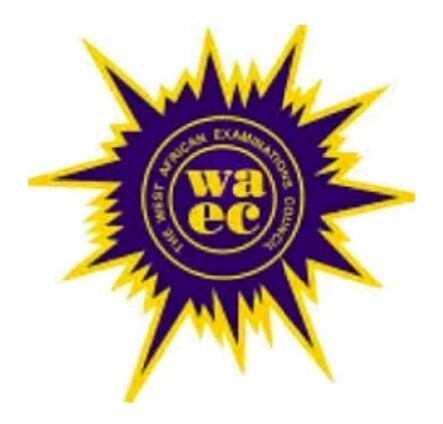Preparing for exams can be challenging, but having a clear understanding of the syllabus is essential.
In this blog post, we will provide a simplified overview of the English Language syllabus for the West African Examination Council (WAEC).
We will explore the aims and objectives of the syllabus, the scheme of examination, and the recommended textbooks.
By following this guide, you can effectively plan your exam preparation and increase your chances of success.
WAEC English Language Syllabus:
The WAEC English Language examination aims to test candidates’ communication skills in both speech and writing.
The syllabus focuses on evaluating candidates’ receptive and productive abilities, including reading, comprehension, vocabulary, lexis and structure, listening comprehension, and recognition of different aspects of spoken English.
The examination sets out to measure candidates’ ability to use correct English, write appropriately for specific audiences and situations, organize coherent paragraphs, and demonstrate control over sentence structures, grammar, spelling, and punctuation.
It also assesses candidates’ comprehension of written and spoken English, ability to recognize implied meanings and tones, and acceptable pronunciation.
Scheme of Examination: The English Language examination consists of three papers: Paper 1, Paper 2, and Paper 3. All three papers must be taken by candidates.
Paper 1:
Paper 1 is an objective/multiple-choice paper that comprises eighty questions, including forty lexical (vocabulary) questions and forty structural questions.
Candidates are required to select the correct option from four choices (A to D).
The lexical questions test candidates’ knowledge of everyday vocabulary and vocabulary associated with various fields of human activity.
The structural questions assess candidates’ understanding of structural elements of English, such as word forms, word combinations, and the use of structural words.
Paper 2:
Paper 2 is divided into three sections: Section A, Section B, and Section C.
Section A:
This section focuses on essay writing and carries 50 marks. Candidates must choose one question out of five and demonstrate their ability to communicate effectively in writing.
The topics may include letter writing, speeches, narration, description, argument/debate, report writing, article writing, exposition, and creative writing. Marks are awarded for content, organization, expression, and mechanical accuracy.
Section B:
This section tests comprehension skills and carries 20 marks.
Candidates are required to read a passage of at least 350 words and answer questions based on the passage.
The questions assess candidates’ ability to find appropriate equivalents for words or phrases, understand factual content, make inferences, analyze English expressions, identify grammatical structures, and explain basic literary terms. At least four questions will be based on understanding the passage.
Section C:
Section C focuses on summary writing and carries 30 marks. Candidates are provided with a prose passage of about 500 words and must extract relevant information, summarize the points concisely, and present a summary of specific aspects or portions of the passage.
Paper 3:
Paper 3 is the oral English test and carries 30 marks. It is divided into two alternatives. Candidates in Nigeria and Liberia take a test of oral skills, while candidates in Ghana, The Gambia, and Sierra Leone take a listening comprehension test.
The oral skills test includes questions on consonants, vowels, diphthongs, stress and intonation patterns, dialogues, and narratives.
WAEC English Language Textbooks:
The following are the recommended textbooks for the WAEC English Language examination:
- Attah, M. O. (2013). Practice in Spoken English for Intermediate and Advanced Learners.
- Bamgbose, A. (2002). English Lexis and Structure for Senior Secondary Schools and colleges (Revised Edition).
- Banjo, A. et al (2004). New Oxford Secondary English Course Book Six for Senior Secondary Schools.
- Caesar, O. J. (2003). Essential Oral English for Schools and Colleges.
- Daniel Jones (2011). Cambridge English Pronouncing Dictionary.
- Egbe, D. I (1996). Mastering English Usage and Communication Skills.
- Elugbe, B. (2000). Oral English for Schools and Colleges.
- Grant, N. J. H, Nnamonu, S. Jowitt, D. (1998). Senior English Project 3.
- Idowu, O. O, Sogbesan, T. S, Adofo, A. K. Burgess, D. F and Burgess, L. J. (1998). Round-up English: A Complete Guide.
- Idris, U. (2001). Oral English at Your Fingertips for Schools and Colleges.
- Igiligi, E. C. and Ogenyi, S. O. (2010) Grammar and Composition in the G.S.M. Age.
- Jauro, L. B. (2013). Oral English for Schools and Colleges: A teaching and Learning Approach.
- Nnamonu, S. and Jowitt, D. (1989). Common Errors in English.
- Obinna, M. F. (2001). University Matriculation Use of English.
- Ogunsanwo, O. Duruaku, A. B.C, Ezechukwu, J and Nwachukwu, U. I (2005). Countdown English Language.
- Olatoye, S. (2006). The Silent Teacher.
- Oluikpe, B. O. A, Nnaemeka, B. A, Obah, T. Y, Otagburuagu, E. J. Onuigbo, S. and Ogbonna, E. A. (1998). Intensive English for Senior Secondary School 3.
- Tomori, S. H. O (2000). Objective Tests for School Certificate English.
- Ukwuegbu, C, Okoro, O., Idris, A. U., Okebukola, F. O. and Owokade, C. O. (2002). Catch-up English for SSCE/UME.
Conclusion
By following the WAEC English Language syllabus and using the recommended textbooks, you can effectively prepare for the examination.
Remember to pay attention to the various sections of the exam, including vocabulary, structure, essay writing, comprehension, and oral skills.
Practice regularly, focus on improving your language skills, and utilize the resources available to you.
With proper preparation and a solid understanding of the syllabus, you can confidently approach the WAEC English Language examination and achieve your desired results. Good luck!






